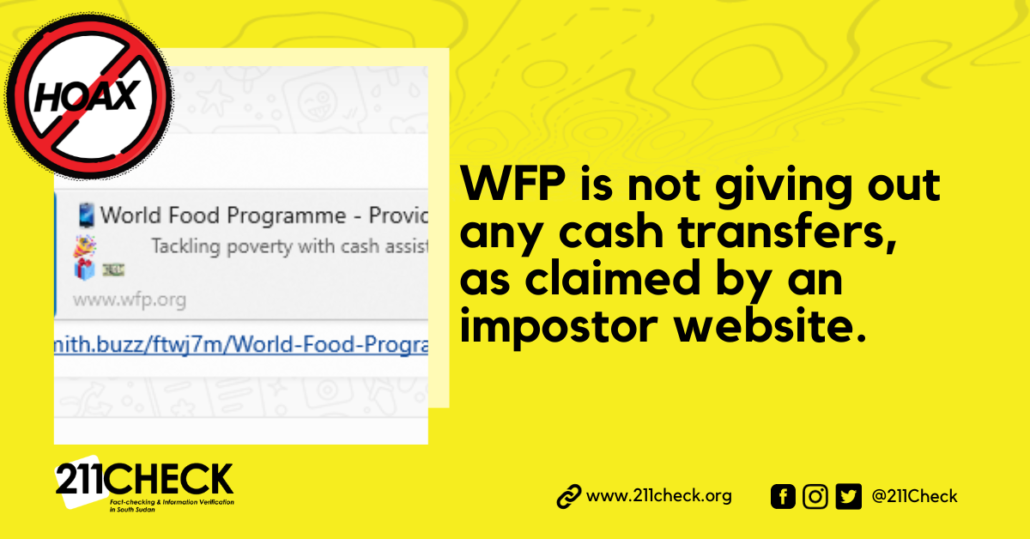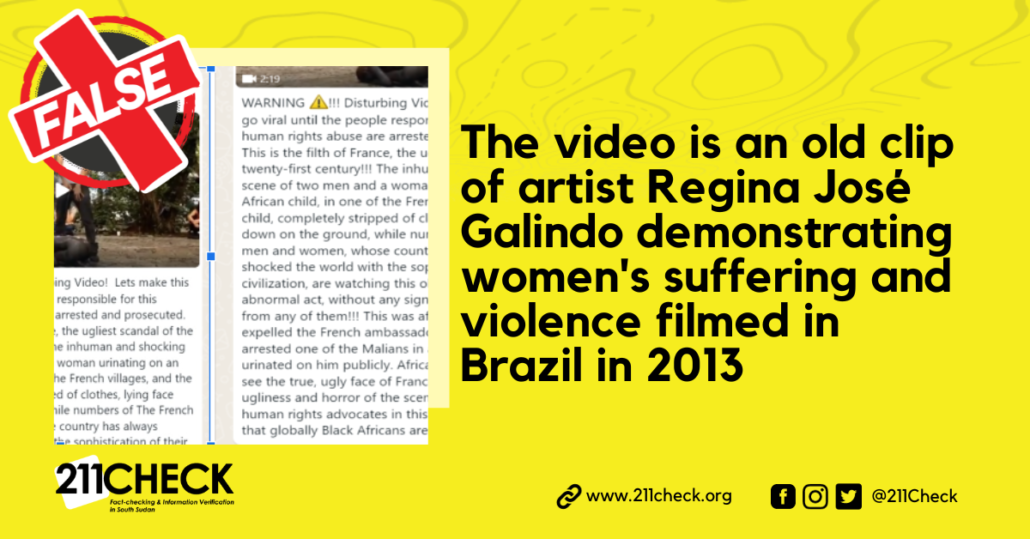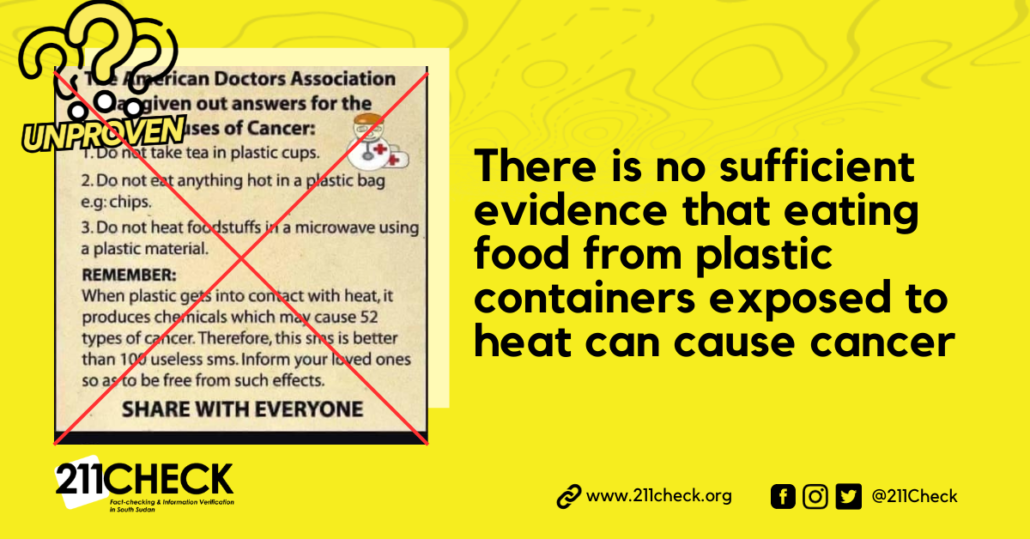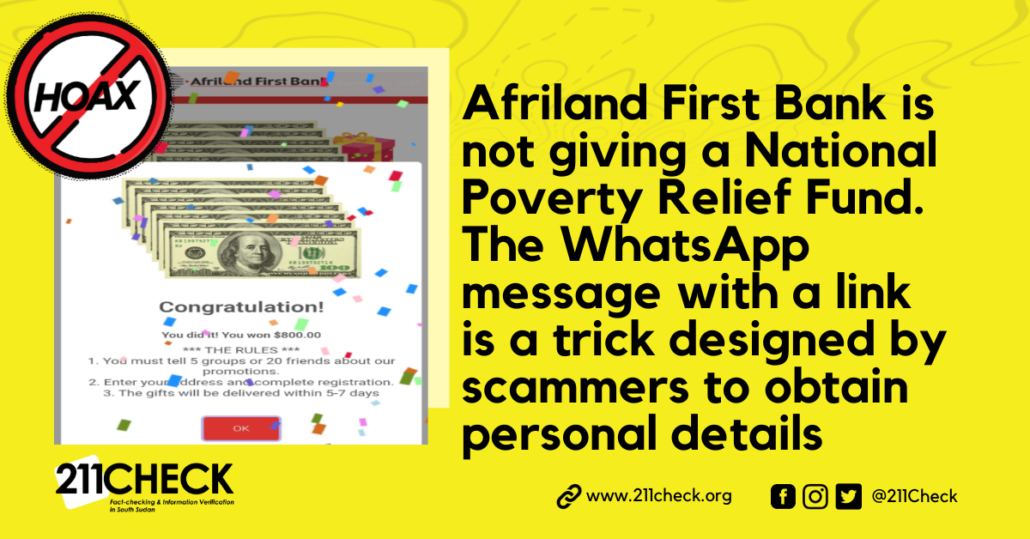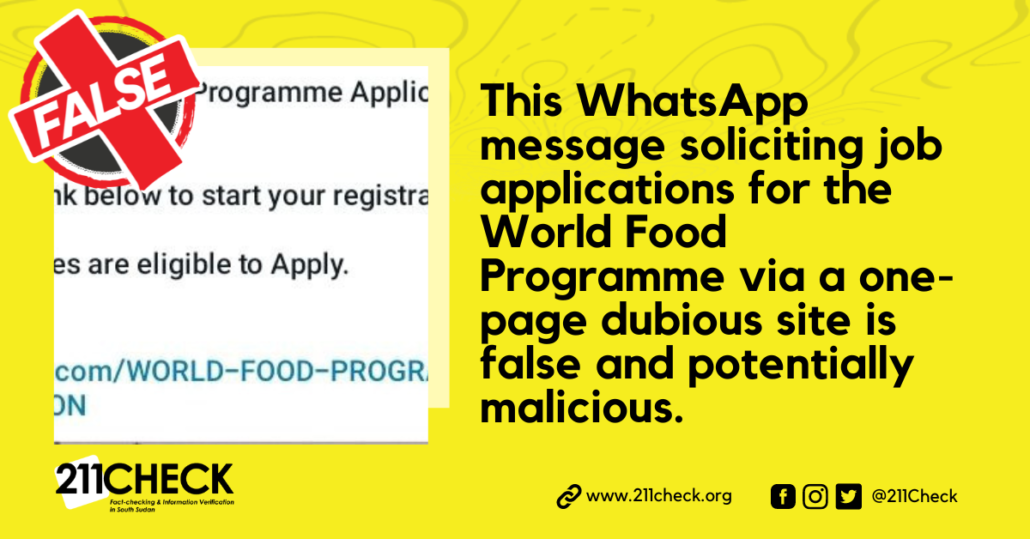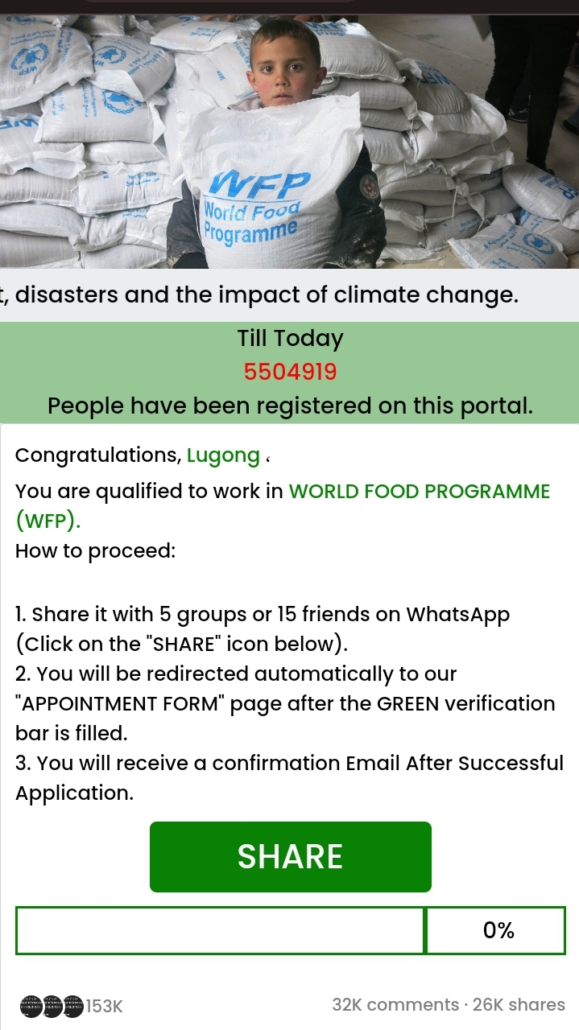Fact-check: Is the World Food Programme giving out $800,000 to organisations?
No, it is a hoax. WFP is not giving out any cash transfers, as an impostor website claims.
Writer: Rufina Isaac
WhatsApp messages claiming the World Food Programme (WFP) is giving cash assistance are a hoax.
The link claims to be from the World Food Programme and provides cash assistance through a questionnaire, after which one will get up to $800.00.
On clicking the link, a congratulations message appears with a picture of a man who is seen to be handing a woman some papers. This is the beginning of the questionnaire, though, whereby they ask whether you know WFP, your age bracket, gender, and how you feel about WFP.
At this point, a congratulatory message opens with nine boxes where you are meant to choose one lucky boc with the price. After all this, you are meant to share it with five groups or 20 people.
Claim Verification:
With all suspicion, 211 Check investigated the link, scanning the URL using online Virus Total. This free online tool helps you determine the safety of links to online viruses and other scams. Six security vendors flagged the URL as malicious, phishing, and suspicious.
Another scan was run through Whois.com, a publicly available database containing domain name registration information. A search for both websites returns two different results, as seen here and here, the second being the genuine website for the World Food Programme.
Specifically, the link for World Food Programme Cash Transfers explains everything clearly without needing to answer any questionnaire.
Conclusion:
211 Check finds a WhatsApp message with a link claiming to be for the World Food Programme providing cash assistance through a questionnaire, a hoax.
Findings show that the link is embedded with phishing, malicious, and suspicious malware intended to steal people’s information for fraud. Be cautious of such websites and only apply for vacancies through the official website for organisations, in this case, wfp.org for the World Food Programme website.
A publication under 211 Check’s ‘Fact-check for a pay’ Initiative with Support from the International Fact-checking Network through the BUILD grant.
To ensure accuracy and transparency, we at 211 Check welcome corrections from our readers. If you spot an error in this article, please request a correction using this form. Our team will review your request and make the necessary corrections immediately, if any.
It’s vital to fight misinformation and disinformation in the media by avoiding fake news. Don’t share content you’re uncertain about. False information can harm and mislead people, risking their lives—Fact-check before sharing. For more details, visit https://211check.org/ or message us on WhatsApp at +211 917 298 255. #FactsMatter

